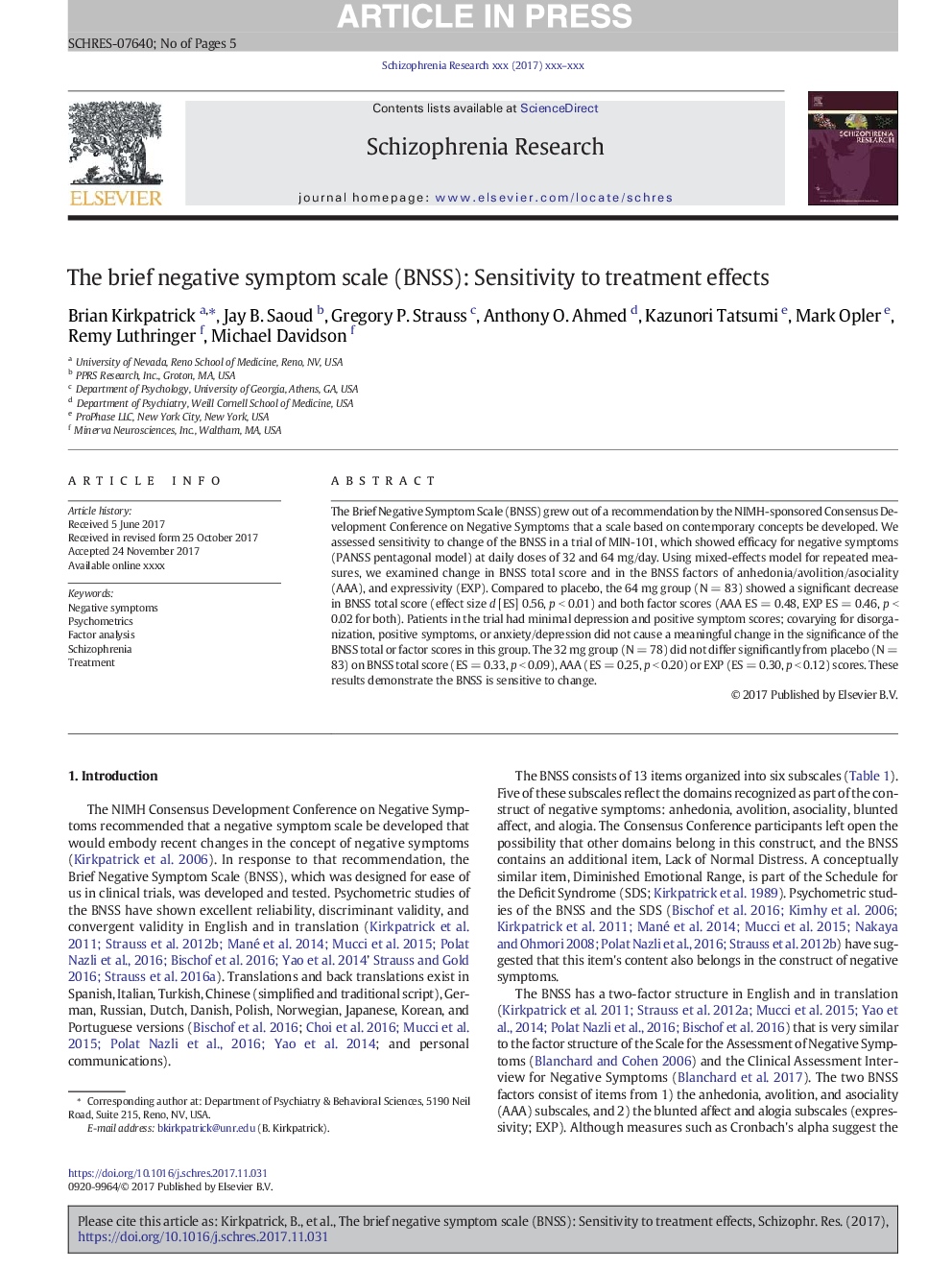| Article ID | Journal | Published Year | Pages | File Type |
|---|---|---|---|---|
| 6820740 | Schizophrenia Research | 2018 | 5 Pages |
Abstract
The Brief Negative Symptom Scale (BNSS) grew out of a recommendation by the NIMH-sponsored Consensus Development Conference on Negative Symptoms that a scale based on contemporary concepts be developed. We assessed sensitivity to change of the BNSS in a trial of MIN-101, which showed efficacy for negative symptoms (PANSS pentagonal model) at daily doses of 32 and 64 mg/day. Using mixed-effects model for repeated measures, we examined change in BNSS total score and in the BNSS factors of anhedonia/avolition/asociality (AAA), and expressivity (EXP). Compared to placebo, the 64 mg group (N = 83) showed a significant decrease in BNSS total score (effect size d [ES] 0.56, p < 0.01) and both factor scores (AAA ES = 0.48, EXP ES = 0.46, p < 0.02 for both). Patients in the trial had minimal depression and positive symptom scores; covarying for disorganization, positive symptoms, or anxiety/depression did not cause a meaningful change in the significance of the BNSS total or factor scores in this group. The 32 mg group (N = 78) did not differ significantly from placebo (N = 83) on BNSS total score (ES = 0.33, p < 0.09), AAA (ES = 0.25, p < 0.20) or EXP (ES = 0.30, p < 0.12) scores. These results demonstrate the BNSS is sensitive to change.
Related Topics
Life Sciences
Neuroscience
Behavioral Neuroscience
Authors
Brian Kirkpatrick, Jay B. Saoud, Gregory P. Strauss, Anthony O. Ahmed, Kazunori Tatsumi, Mark Opler, Remy Luthringer, Michael Davidson,
